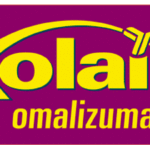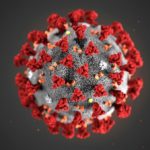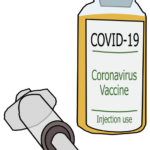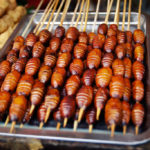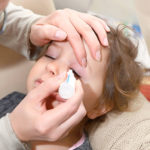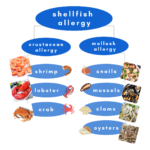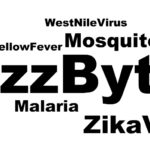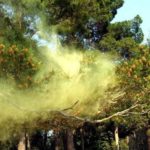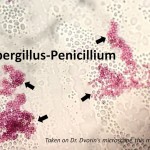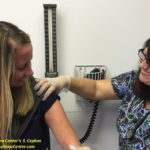allergies, allergy, Asthma, camp, kids with allergies, kids with asthma, outdoors, summer, summer camp, The Asthma Center
Bummer-Free Summer: See an Allergist, Make a Plan
For interviews and tours of the Delaware Valley’s only certified pollen and mold spore stations for the National Allergy Bureau (NAB) with stations, please email gwoodlyn@asthmacenter.com
School’s out for the summer in many areas of Pennsylvania and New Jersey. For many children across the state, summer camp is the action plan of the summer and packing a backpack is as much as they need to do to get ready. For children with allergies, asthma, and/or food allergies however, getting camp-ready takes more planning.
While many camps are equipped with action plans and a staff who are trained to accommodate children with allergies, asthma, and/or food allergies, it’s important to understand how these plans relate specifically to your child’s needs. How prepared is your child for a safe and fun experience at summer camp?
Talk to your Allergist
Your allergist is an important ally to have before your child goes to camp. At The Asthma Center, our board-certified physicians meet with parents and children every year looking to go to summer camp, and create appropriate action plans to get them ready before they leave. Parents concerned about the capability of a specific camp in meeting their child’s needs can also consult with our physicians who will offer solutions or appropriate alternatives. In the event of an emergency, one of our allergists is always on call – if your child needs help, a doctor who knows their medical history will be able to assist remotely.
Make an Action Plan
As a parent, you know your child’s allergies, asthma, and/or food allergies better than most. Identifying your child’s allergy, asthma, and/or food allergy triggers and signs to watch for their symptoms are of the utmost importance, and need to be taken into consideration when choosing a camp for your child. A written allergy plan should cover all bases and have instructions in place that the camp would follow in the event of an emergency or accidental exposure to an allergen. The Asthma Center’s board-certified physicians meet with parents every summer to tailor a plan that best meets your child’s needs while they’re away from home. Summer is not the time to take a break from allergy and asthma medication, and our physicians will make sure a plan is in place so your child and their camp don’t forget.
Communicate, Communicate, Communicate
If your child has an allergy, asthma, and/or food allergies that requires specific medication or a Food Allergy Plan, talk to the camp and give them details of your child’s needs. Ask about their specific allergy accommodations, who (and how many) in the camp are trained to administer an EpiPen or other emergency medical care, and how the camp has handled allergy and asthma flares, and food anaphylaxis in the past. Walking through an action plan approved by your allergist with medical staff and camp leaders ensures they understand how best to react in an emergency situation, and allows you as the parent to gauge the preparedness of the camp staff.
Teach your Child
It’s not enough for the camp to have an action plan if your child doesn’t know how to avoid allergy, asthma, and/or food allergy triggers themselves. Talk to your child about their allergies and how they can avoid exposure to an allergen that may make their symptoms flare. A great guide to help kids learn about their allergies and asthma is through the Camping Safe Key offered by the American Academy of Allergy, Asthma & Immunology (AAAAI). If your child’s allergy requires an EpiPen and they are old enough to carry it with them, make sure they understand how to use it – and in what situation.
Encourage them to ask questions if they feel unsure whether their setting will cause a reaction, like eating in the mess hall if they have food allergies or playing in a field if they are allergic to insect stings. An action plan should address all of these questions preemptively, but reassurance by the child may settle their nerve so they can continue to enjoy their camp experience. The Asthma Center’s physicians are on hand to talk to your child and train them and parents on best-practices for being allergy, asthma, and/or food allergy prepared.
Asthma Camps & Camps in the area that provide allergy-friendly accommodations:
New Jersey:
- Camp Merry Heart- Easter Seals (Hackettstown, NJ)
- Camp TAG (The Allergy Gang) (Williamstown, NJ)
Pennsylvania:
- Asthma Camp of the Greater Leigh Valley (Orefield, PA)
- Camp AsthmaCadabra (Scranton, PA)
- Camp Chen-a-Wanda (Thomson, PA)
- Dragonfly Forest Camp (Poconos; Dingmans Ferry, PA)
Delaware:
- Asthma Camp (Newark, DE)
Maryland:
- Camp Superkids (Maryland Line, MD)
Make an appointment to see an allergist – Why Choose Us?
The best way to fight your allergies is to visit a board certified allergist, learn what your allergies are, create a treatment plan, and adjust as needed. No two allergy sufferers are alike, so don’t rely on over the counter medications when you could be targeting your symptoms with the help of our allergy experts! At The Asthma Center, we know that no two individuals are alike, and our goal is to personalize your treatment to help you find relief. We accomplish this through identifying your allergies and specific levels of allergic sensitivity through allergy skin testing to help you plan your treatment. By following the local pollen counts, we are able to customize allergy regimens that prevent symptoms caused by taking too little, or too much allergy medication.
Did You Know – Pollen & Mold Spore Counts Direct to Your Inbox!
The Asthma Center’s daily Pollen and Mold Spore Count, the Delaware Valley’s only Official count station which is certified by the National Allergy Bureau are now available via email. Subscribe to receive our daily counts by email or check out some of our other blog posts to learn more about what is in the air, how it can affect you, and what you can do about it.
Recent
Popular


